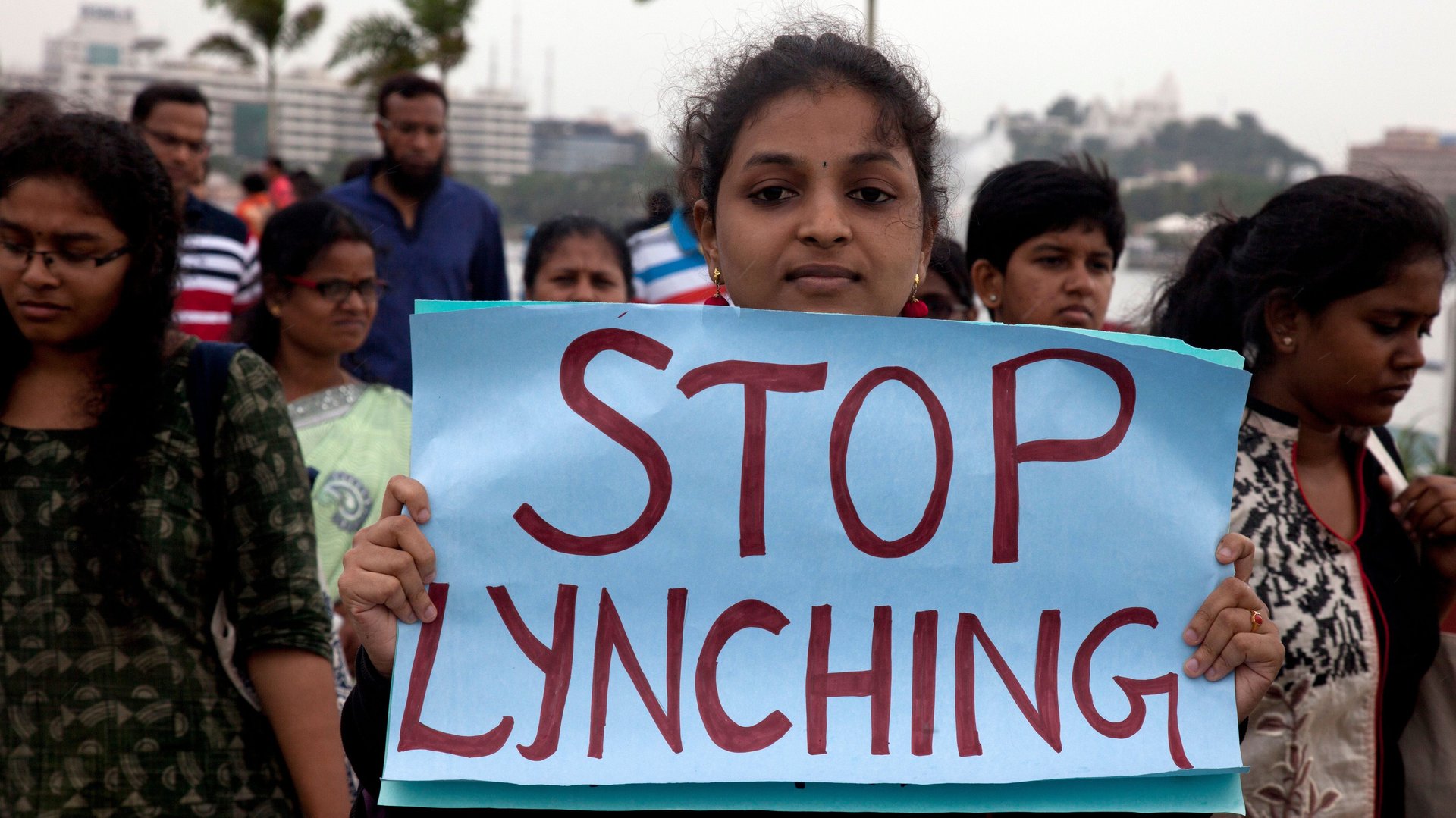WhatsApp is limiting message forwarding in a country where fake news can kill
Indians forward more messages, photos, and videos on WhatsApp than people of any other country. But the app now plans to bring in some restrictions on these to curb the menace of fake and provocative messages.


Indians forward more messages, photos, and videos on WhatsApp than people of any other country. But the app now plans to bring in some restrictions on these to curb the menace of fake and provocative messages.
On July 19, WhatsApp said that from now on a user will be allowed to forward a message to only five other users or groups at a time. It is also removing the quick forward option currently available with media messages.
“We believe these changes—which we’ll continue to evaluate—will help keep WhatsApp the way it was designed to be: a private messaging app,” the Facebook-owned company said in a blogpost.
These moves are in response to the Indian government’s warning earlier this month to stop circulation of “irresponsible and explosive messages filled with rumours and provocation” which have led to lynching of innocent people across the country.
Sanchit Vir Gogia, founder and CEO of Greyhound Research, calls the measures “good on intent but poor on ability to curb fake news.” In a tweet on July 20, he suggested that deploying machine learning “to identify the bad apples and bar them” would be a more fool-proof fix.
Since May this year, there have been at least 16 such cases, many reportedly sparked by paranoia spread on social media over child kidnappers. WhatsApp, India’s most popular messaging app with over 200 million active users, is shouldering much of the blame for this.
Amidst a growing backlash, the platform has also been seeking other ways to tackle the problem. It commissioned a set of global awards for researchers studying the spread of misinformation on online platforms. It published a full-page advertisement in a local newspaper to educate Indians on the perils of fake news.
WhatsApp did not respond to Quartz’s queries about how long the test would last and how it would fight other ways of disseminating fake news, such as group chats or saving and sending false material as a new message.